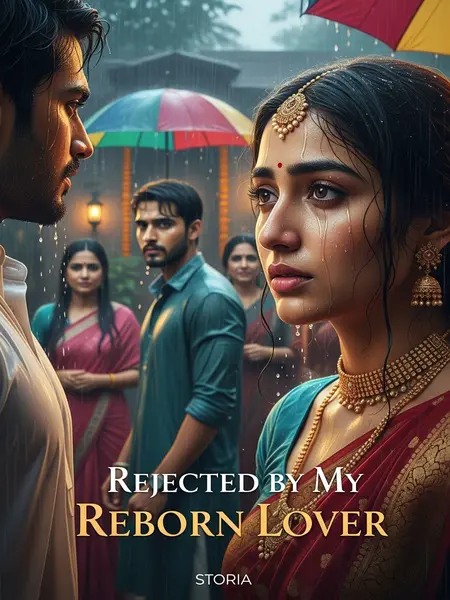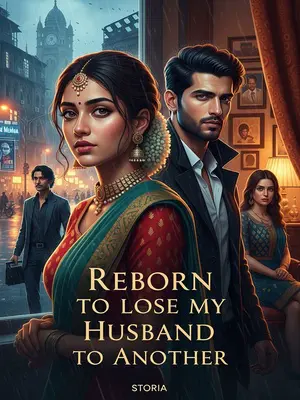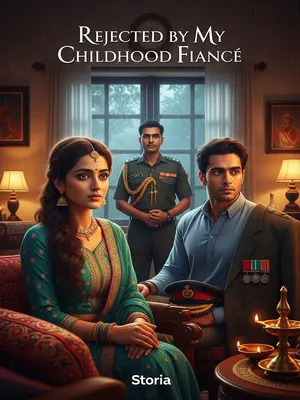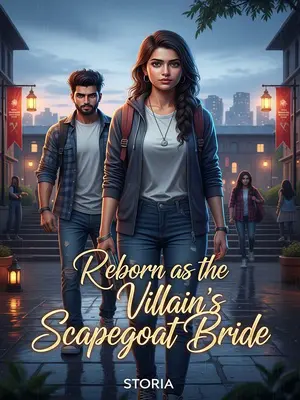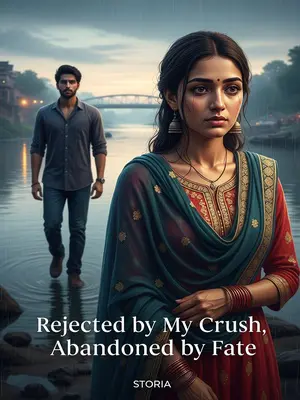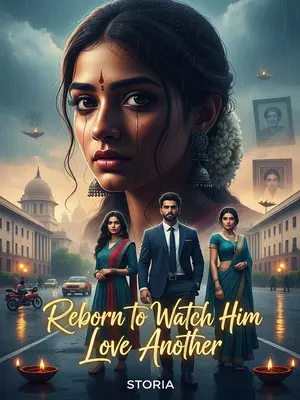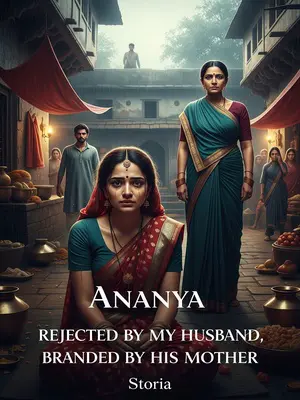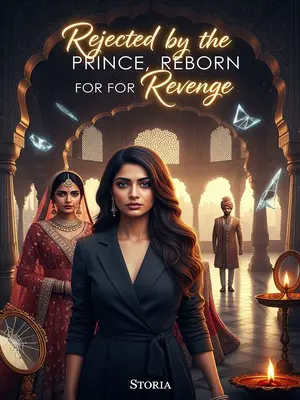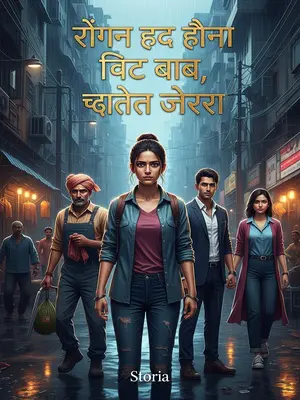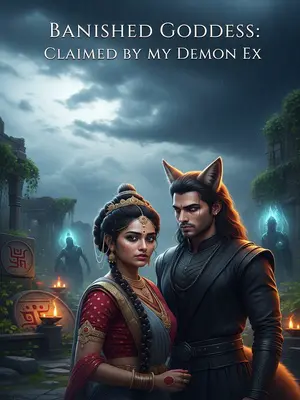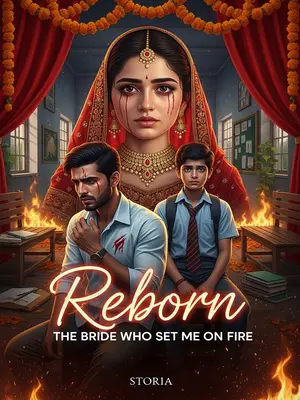Chapter 2: Rakhi or Ruin
The incident at the Holi mela caused quite a stir.
The next morning, the phone hadn’t stopped ringing—relatives from as far as Pune calling to confirm what they’d heard through the grapevine. In the chawl, even the milkman paused for gossip before delivering the doodh. The news travelled faster than the Holi gulal still staining my fingers.
When I returned home, Ma had already heard the news.
She waited for me, dupatta tucked at her waist, half-finished rolling out chapatis, the dough drying from neglect. Her brows were furrowed, but her eyes brimmed with that quiet strength. “Arrey, Priya, you came? Sit, beta—have some water,” she said, her voice softer than usual.
In my presence, she first scolded Arjun for his recklessness and ingratitude, then lamented that he was still young and inevitably fickle. She berated him for a good while before finally, hesitantly, asking me if I had truly made up my mind.
Her words came in a flurry, equal parts anger and concern. “That boy, Arjun, has lost his senses! After so many years, how could he embarrass us like this? But you know how boys are, na? Aaj idhar, kal udhar…” Then, looking at me over her spectacles, her voice dropped, “Beta, think once more—are you sure this is what you want?”
I had already thought it through on the auto ride home.
The auto jerked over a pothole, Bollywood songs blaring from the driver’s phone, as Mumbai’s dust and heat pressed in on me. By the time we turned into our narrow lane, I’d replayed every moment, vowing to keep my dignity intact, no matter what. My heart ached, but my mind was clear as the monsoon sky after rain.
This matter was not difficult to resolve. It was Arjun who had erred, and if we wished to settle things quietly and avoid gossip, there were only two options.
The rules of the world were simple, Ma had always said. “We don’t run after those who don’t value us,” she’d remind me, folding laundry. “Either they fix their mistake, or we walk away with our heads high.” I remembered her words as I weighed my choices, determined not to let society’s wagging tongues decide my fate.
First, the Singh family elders could come in person to apologise and publicly declare that Arjun wished to marry a daughter of the Sharma family. That would preserve our family’s reputation.
It wasn’t unheard of—elders arriving with sweets, folded hands, and a promise to set things right. The world would nod, and the girls could still walk with their heads high. Ma’s eyes lingered on the unopened box of sweets on the table, waiting for such an apology.
Second, we could sever ties and cease all contact, avoiding any further suspicion.
Sharma pride ran deep, and Ma was clear: “We will not beg for anyone’s approval, Priya. Better no relation than a half-hearted one.” I nodded, my resolve steeled.
Though the Singh family was at its peak, the Sharma family was also flourishing—both were army families of equal standing.
Everyone in the colony knew our families: stories of valour, medals, and sacrifices. At every Republic Day flag-hoisting, our names were spoken with respect. No one could look down on us.
If it truly came to breaking off relations, it would not be impossible.
We’d seen alliances form and break, fortunes rise and fall, but the Sharmas always stood tall. Amma’s reassuring hand on my shoulder reminded me: “If it must end, let it end with dignity.”
But in this world, women are always held to a harsher standard. Even without an official engagement, the fact that Arjun and I were childhood sweethearts would make it much harder for me to find another suitable match.
The aunties would whisper, the neighbours would raise their eyebrows. “That Priya, jiska Arjun ne mana kar diya,” as if my worth depended on his choice. I clenched my jaw, refusing to let their words define me.
There were many eligible young men and women in Mumbai, but most had already settled their marriages in their early teens. Now, finding a proper husband would not be easy.
Alliances were struck early, sometimes as soon as a girl finished Class 10. The eligible boys dwindled as quickly as Diwali mithai. Ma’s worry lines deepened, her voice soft. “We’ll find someone, beta, but it won’t be easy.”
So Ma still favoured the first solution—it would be best for me, for the Sharma family, and even for the Singh family. A win-win for all.
Her eyes shone with hope, her voice gentle but persistent. “If only they come and apologise, Priya... everything can be fixed. For their izzat and ours.”
But since Arjun had refused to catch my garland that day, I naturally would not force myself to accept a half-hearted arrangement.
The old Priya might have wavered, but not this one. I squared my shoulders and told Ma, “No, Ma. I will not settle for less. If he does not want me fully, I do not want his pity.”
Ma agreed, and we decided to wait three days. If no one from the Singh family came to explain within that time, the Sharma and Singh families would sever all ties for good.
Three days, Ma said. “Let them come and set things right, or let the chapter close forever.” She made the announcement with the finality of a festival’s end.
The servants quietly put away the prepared horoscope cards, and the matter was settled.
I watched as the colourful kundli papers—decorated by Ma’s own hand—were slipped into a tin box beneath the puja shelf. The air felt heavy, as if the house itself mourned a lost future.
Ma made all the necessary preparations, but to our surprise, after three days, it was not the Singh family elders who came to apologise. Instead, Arjun arrived at our door, carrying a cane in the traditional gesture of seeking punishment—a form of ‘bearing the stick and begging forgiveness.’
His figure at the gate was a shock—no brass band, no elders, only Arjun in a plain white kurta, barefoot, holding the cane. The old women muttered, “Look, he has come to accept punishment. So much pride in that boy, but he knows our customs.”
Under the warm March sun, he wore only a simple white kurta and knelt, upright and motionless, at our gate.
Sweat trickled down his neck, but he did not move. Neighbours peeked through curtains, children gathered, whispering. It was a scene straight from an old Hindi film—atonement without words, pride laid low at our doorstep. My emotions churned: anger, pity, longing.
No wedding gifts, no marriage contract, not even an apology—he simply knelt there, as steady and unmoving as the banyan tree that grew before our door.
The banyan’s shadow dappled his face. Amma fretted, wanting to call him in for water, but Papa’s jaw was set. “Let him sit. Let him feel the weight of his actions,” Papa muttered, his anger barely contained.
When the maid reported this, Papa was furious.
He banged his walking stick, voice thundering. “What does he think of himself? To insult my daughter and then come crawling back! No, not in this house!” The house echoed with his rage, the servants scuttling away.
Ma scolded him too, saying Arjun didn’t know the proper rules.
She tried to reason, “Let the elders speak first, na? This is not the way, Ajay. Don’t make a scene.” Her voice was tight, caught between anger and worry. Still, her eyes kept darting to the window.
Only I, amid Papa’s anger and Ma’s rebuke, had Arjun brought into the main hall.
A strange calmness overtook me, as if some ancestral strength guided my steps. With a nod, I signalled the maid to let him in. Amma hesitated but gave her silent assent. Arjun entered, eyes lowered, cane still in hand, the image of remorse.
After three days apart, he looked even thinner.
His cheeks were hollow, the dimple on his chin hidden beneath new lines of worry. His kurta hung loose, as if he was shrinking away. I wondered if he’d eaten at all since that day.
Beneath the thin fabric, the lines of his body stood out like the veins of a leaf.
I remembered tracing those lines with my fingers in another life, counting his scars like rosary beads. Now, the sight of his gaunt frame made my chest ache with a mix of anger and longing.
I still remembered the scar three inches below his left shoulder—a cricket injury from a match with Captain Verma’s son when he was ten. The prize that day was a silver pen.
That day, I’d bandaged him myself, using Amma’s old cotton sari. He had grinned through the pain, clutching his silver pen like a war trophy. “Dekho, Priya, only for you!” he’d declared, eyes shining.
Two inches below his right ribs was a knife scar, received at thirteen when I was kidnapped by dacoits while travelling. Arjun had chased the jeep desperately, taking a blade to the chest to save me.
Even now, the memory chilled me. The rush of fear, the metallic scent of blood, the frantic ride back in a tempo—those hours had bonded us more than any ritual. I would never forget the way he gripped my hand, refusing to let go even as he bled.
I had been terrified, pressing a dupatta to his wound all the way home, barely saving his life.
Amma’s tears, hurried prayers, and my desperate attempts to stop the bleeding—all flashed before my eyes. That blood-soaked dupatta, its colour forever changed, still lay hidden in my trunk. A silent witness to our fate.
When he recovered, he teased me, saying I had shed more tears that day than he had blood.
“Arrey, Priya, agar tu aise roti rahegi toh main har din knife se cut lunga!” His laughter had been my medicine. That day, I knew how deep my love for him ran.
That silver pen and the bloodstained dupatta are still kept carefully in my dressing drawer.
On lonely nights, I would take them out, tracing the faded stains and the engraving on the pen—reminders of love and sacrifice, of a bond forged in pain and hope.
But the bond between us was no longer what it once was.
The ache in my chest deepened, an emptiness where love once bloomed. I realised, with a clarity that hurt, that sometimes even the strongest ties could unravel when fate demanded it.
Something inside me felt as if it were tearing open. I called his name softly.
My voice wavered, trembling with memories and regret. “Arjun…” The word, so familiar, now tasted strange, heavy with loss.
“Arjun.”
He looked up then, as if waking from a dream, eyes unfocused, haunted by ghosts of another life.
Only then did he look up, his eyes full of confusion.
For a moment, I thought I saw a flicker of the old Arjun—the boy who would move mountains for me. But then the confusion hardened into something distant, unreachable.
“That day at the garland game—you let it fall on purpose, didn’t you?”
The silence stretched, thick and heavy. My question hung in the air, too bold, too raw. Amma tensed, Papa’s grip on his stick tightened, but I held his gaze, needing the truth.
“…Yes.”
He spoke so softly, the word almost lost in the stillness. Yet it thundered in my ears. My world shifted, the ground tilting beneath my feet.
“So you don’t wish to marry me?”
The rules of propriety snapped, but I no longer cared. I needed to know, to finally put the ghost of our old life to rest. Amma shot me a warning glare, lips pursed in silent reprimand.
Asking such a question before marriage was improper, and Ma shot me a warning look, quickly ordering the servants to close the main doors.
The click of the doors sounded like a final verdict. The house, once so full of laughter and light, now felt like a courtroom awaiting judgment.
Arjun hesitated, then answered.
He stared at the marble floor, searching for the right words. His lips parted, but for a moment, nothing came. Finally, he spoke, voice barely above a whisper.
“…Yes.”
That single word landed like a heavy bell, echoing in my mind again and again.
The finality of it struck me harder than any slap. It rang in my ears, again and again, relentless, until even my bones seemed to ache with the loss.
Each reverberation struck my heart like a hammer or an axe.
The pain was physical, sharp as broken glass beneath bare feet. I pressed my hand to my chest, willing myself not to cry, not here, not now.
I thought of the green mangoes we picked at eight, the silver pen at twelve, even the wedding rituals after our shaadi. Each memory bore witness to our deep affection.
Our lives had been a series of small, perfect moments: mangoes stolen from the neighbour’s tree, scribbled notes passed in class, the hush of the wedding night. Each memory flared within me, both comfort and torment.
We had been a loving, harmonious couple.
Neighbours had envied our bond, Amma had prayed for us, and even strangers had wished us well. Now, all those blessings seemed wasted, scattered like petals after a storm.
But after living another life, he no longer wished to marry me.
The cruelty of fate was almost unbearable. I searched his face for answers, for hope, but saw only the closing of a door.
I could not understand why.
My heart screamed the question, but my lips could not form the words. Why, Arjun? Why throw away what we had, what we were?
All my composure crumbled, and my voice trembled despite myself.
For the first time in years, I felt the tears rise, hot and bitter. My pride wavered, but I did not care. I needed to know.
“Why?”
My voice cracked, echoing in the silent room. The question was more plea than demand—one last, desperate bid for the truth.
